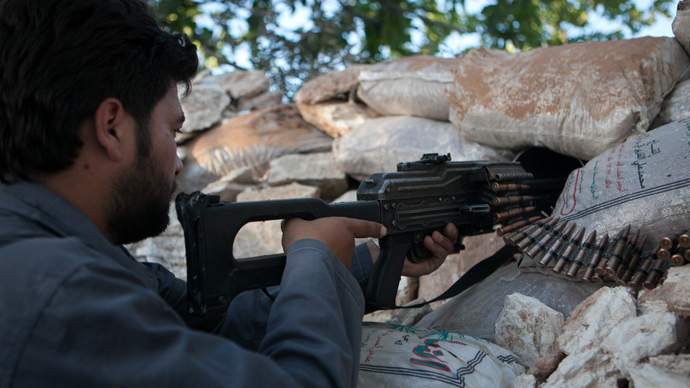Syria: Russia optimistic despite differences

In the run-up to the G8 Summit at Lough Erne, there was much speculation over the disagreements between Russia and the West on Syria: Claims of chemical weapons use, arms deliveries to the rebels and the prospects for a new Geneva conference.
But the talks in Northern Ireland – and the meeting between President Putin and Prime Minister Cameron in London the day before, in which I had the privilege of participating – have shown that their positions are much closer than they may seem at first.
The primary points of convergence are the absolute need to stop violence in Syria and the idea that only a political solution to the crisis is acceptable. Leaders have reiterated their strong support for a conference, proposed several weeks ago by Russian Foreign Minister Sergei Lavrov and US Secretary of State John Kerry. They were united in denouncing terrorist and extremist elements in Syria, and in declaring that, in the postwar period, the rights of all ethnic and religious segments of Syrian society must be upheld. Significantly, all G8 participants have condemned any use of chemical weapons and have called on the parties to the conflict to allow access to the UN’s investigating team.
It is already being widely commented that the summit has signaled a shift in Russia’s approach to the conflict. I would say that Russia’s approach is now better understood by our Western partners. In fact, the politics of consensus have carried the day.

For instance, the planned conference will pave the way for negotiations between the Syrian government and the opposition that the Russian authorities have been advocating since the crisis began more than two years ago. We remain of the view that the conference must bring together government representatives and a wide range of opposition groups. Only a truly inclusive representation can bring about a successful outcome for all Syrians. We continue to believe that the role of outside players is not to impose solutions – this strategy has proven wrong in many instances, including the Israeli-Palestinian peace talks – but rather to help Syrians by encouraging them to negotiate in good faith and by guaranteeing the arrangements that they may reach. Within this context, it is crucial to ensure the participation of all external players, including Iran, Qatar, Saudi Arabia, Egypt, and Turkey.
A broad discussion is under way on arming the so-called rebels. On that, we remain in disagreement with the UK and US. Sending weapons to the opposition means fueling the conflict rather than bringing it to an end. It would also create threats to other countries; cases in point include the sad experience of US help to the Mujahideen in Afghanistan and the recent case of weapons sent by France to Libya ending up in the hands of rebels fighting the French army in Mali. Perhaps more importantly, these discussions result in the opposition and government in Syria having expectations that make it harder to bring them to the negotiating table.
However, we remain optimistic on the conference’s prospects. The opinion is widely held that Moscow must bring Syrian President Bashar Assad to the talks. This may be considered done: Assad has declared his willingness to engage in negotiations, and has appointed a high-level negotiating team. We await the results of our US partners’ corresponding efforts in respect of the opposition. We wish success to our US friends, as they are probably the only power capable of persuading the opposition to participate in Geneva-2.
The statements, views and opinions expressed in this column are solely those of the author and do not necessarily represent those of RT.
The statements, views and opinions expressed in this column are solely those of the author and do not necessarily represent those of RT.













